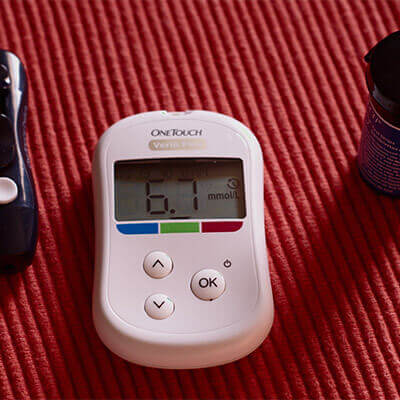Failure to Treat Diabetes Claim
As specialist Solicitors for Failure to Treat Diabetes Claims, we understand the impact such negligence can have on your health and wellbeing.
We have extensive experience in handling compensation claims for victims of medical negligence, and we are committed to providing you with the legal guidance and support you need to seek justice.
Excellent TrustScore | 4.6 on TrustPilot

Our work has been featured in







Failure to Treat Diabetes Claims: Seeking Compensation for Negligence
Diabetes is a serious medical condition that requires proper treatment and management. If you or a loved one has suffered harm due to medical negligence related to diabetes, you may be entitled to compensation. Negligence can arise from a failure to diagnose or treat diabetes, failure to monitor blood sugar levels, or incorrect medication prescriptions.
What is a failure to treat diabetes compensation claim?
A failure to treat diabetes compensation claim is a legal claim for damages brought by a person who has suffered harm due to medical negligence related to diabetes. The aim of the claim is to compensate the person for the physical, emotional, and financial losses they have suffered as a result of the negligence.
What are the common causes of failure to treat diabetes claims?
Failure to treat diabetes claims can arise due to various types of medical negligence, including:
- Failure to diagnose diabetes or misdiagnosis
- Failure to provide proper treatment, such as insulin or medication
- Failure to monitor blood sugar levels
- Incorrect medication prescriptions
- Delayed or inadequate treatment
What can you claim for in a failure to treat diabetes compensation claim?
In a failure to treat diabetes compensation claim, you may be entitled to claim for various types of damages, including:
- General damages: compensation for pain, suffering, and loss of amenity
- Special damages: compensation for financial losses, such as medical expenses, loss of earnings, and travel costs
- Future losses: compensation for ongoing or future medical treatment, care, and support
- Rehabilitation costs: compensation for physiotherapy, occupational therapy, or other types of rehabilitation required as a result of the injury
How do you make a failure to treat diabetes compensation claim?
To make a failure to treat diabetes compensation claim, you should seek the advice of a specialist medical negligence solicitor. They will assess your case and advise you on whether you have grounds for a claim.
If you decide to proceed with a claim, your solicitor will gather evidence, such as medical records and expert reports, to support your case. They will then negotiate with the defendant’s insurance company to reach a settlement or, if necessary, represent you in court.
Contact our failure to treat diabetes compensation claim solicitors today
If you or a loved one has suffered harm due to medical negligence related to diabetes, contact our specialist solicitors today. We have the expertise and experience to guide you through the legal process with compassion and determination, and to secure the compensation you deserve.
Call us on 0151 306 3694 or complete our online enquiry form to arrange a free, no-obligation consultation with one of our solicitors.
Start your ClaimFAQs
A claim must be brought no later than 3 years from a claimant’s knowledge of the negligence.
This will vary case by case as it may take time for degenerating illnesses and injuries to become apparent.
There are also instances where the 3-year limitation is not applicable or can be extended.
You may be in a position to bring a claim at any time if the claimant lacks mental capacity and, or if the claimant was, at the time of the negligence, a child under the age of 18.
The team at Phoenix Legal Solicitors are fully equipped to deal with claims where:
- a loved one has passed away, or
- are no longer capable of bringing a claim themselves due to the devastating effects of Medical Negligence.
We ensure that all claims are dealt with professionally and are always available to provide support, care and guidance to the representatives and family members who we recognise are often largely indirectly affected.
We are also able to help you bring a claim for a minor on their behalf as, by law, they are unable to represent themselves.
How Our Solicitors Work to Help You
To find out whether you have grounds for a medical negligence claim, we offer a free initial consultation with one of our expert medical negligence solicitors. Once we have that established, we will be able to proceed with your claim.
If we advise you that you may have a claim, we will offer a no-win, no-fee agreement. No-win no-fee means that you won’t have to pay anything upfront or if your claim is unsuccessful*.
Throughout the claim process, we will ensure you always have the right independent medical experts consulting with you on your claim.
We will also work with specialist barristers who, together with us, will make up your specialist team.
Our team will help you win your medical negligence claim with minimal stress and disruption so that you can focus on getting your life back on track.
We understand it may not be possible to meet face to face with us so we offer free consultations via Skype, Facetime or any other preferred method. We can also arrange a home visit.
* Subject to entering into a No Win No Fee agreement in conjunction with an After the Event insurance policy and complying with your responsibilities under its terms.
Make a Free Enquiry
We are committed to protecting your personal information. The information on how we handle your data is in our privacy policy.